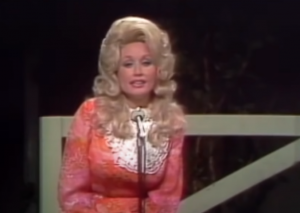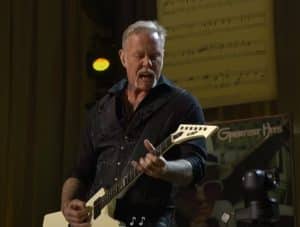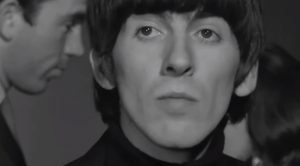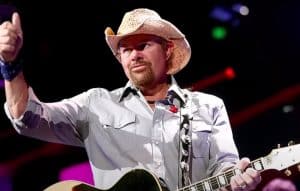9 Most Chaotic Band Breakups In Rock Music History
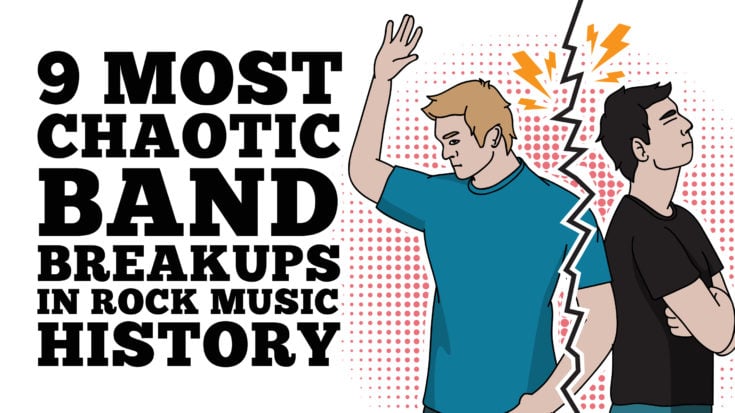
You Wouldn’t Believe How Some Started
Sometimes, it’s inevitable – someone wants to go solo or maybe there’s mounting tension among members. The fact of the matter is, even at the height of their career, bands can break up and it’s not always pretty.
1. The Beatles
Perhaps there isn’t a more widely publicized bitter break up that of The Beatles. Do you remember the time the news broke out? People were shattered. Decades later, everyone’s still talking about it especially because a letter from John Lennon and Yoko Ono to Paul and Linda McCartney has just surfaced online (with angry lines such as “I hope you realize what s**t you and the rest of my ‘kind and unselfish’ friends laid on Yoko and me, since we’ve been together.”).
But what tore them apart? According to an interview with Paul this year, the main culprit included the new manager and business practices. Although he did say that he and John still kept in touch after. There were speculations that it was Ono’s fault. The band wasn’t exactly pleased when John brought her to the studio as a collaborator and even more so after they learned that the couple had begun using heroin. There were several dramatic events leading to their break up including Ringo Starr quitting for almost two weeks and George Harrison bringing in Eric Clapton for his masterpiece “While My Guitar Gently Weeps.”
2. Fleetwood Mac
Before there was Taylor Swift and her controversial boyfriends and exs, there was Fleetwood Mac. The band had no shortage of drama whether it’s relationship problems or tension among members. It was like a real-life soap opera that everyone tuned into. So many things happened before they totally disbanded in 1995 – the alleged physical altercation between Lindsey Buckingham and Mick Fleetwood at Christine McVie’s house after Lindsey backed out of their ten-week touring schedule and the disagreement between Stevie Nicks and Fleetwood when her request to include her track was denied.
Throughout the course of the band’s active years, there were several changes in the lineup. And after they disbanded in the mid-90s, Fleetwood began working with Buckingham again. On May 1996, some of the members also made a special appearance at a private party. If we can learn anything from Fleetwood Mac, it’s that you can bury the hatchet and still work well together after you broke up – take it from Buckingham and Nicks.
3. Van Halen
Sometimes, vocalists and frontmen leave their bands because they want to pursue a solo career. It happens. But perhaps what makes Van Halen from other groups is that up until now, people continue to talk about the controversial feuds between Eddie Van Halen and two of their former singers – David Lee Roth and Sammy Hagar. There have been internal tensions prior to Roth’s departure. He announced he wanted to do a movie and according to Van Halen, “He even had the balls to ask if I’d write the score for him.” And that pretty much confirms the fact that it was an ugly break up for them. And with their next vocalist, Sammy Hagar, the conflicts started when they were working on their compilation album. While Van Halen said Hagar quit, Hagar claimed that he was fired by the band.
In an interview with Hagar three years ago, he said: “I think Alex and I are probably still good friends. Eddie and I, we hit a real hard bump in the road. It’s kind of like a relationship with a partner and things go so wrong that you just don’t feel like you can ever let that go. But we’ll see. ‘Cause I think I can let anything go. I don’t know if Eddie can let anything go; maybe he can. But right now, there’s a lot of resentment built up. It’s almost like there’s so much anger that I don’t wanna even run into him.”
4. The Allman Brothers Band
The Allman Brothers stood at a crossroads when the driving force of the band, Duane Allman, died. At the time when they didn’t know where to go from there, it was Dickey Betts who stepped up and propelled them to move forward. In more ways than one, he saved the legendary group. He was a remarkable songwriter and the proof lies in the great many songs that were later considered ‘timeless.’ However, even with all his brilliance and talent, he was still kicked out of the band because of his recent sloppy performances and alleged drug abuse. The thing is, it came as a shock to Betts and the fans.
He said he merely received a fax, “Last Thursday I received a fax notifying me that I would not be performing this summer with ABB. It said, ‘You have not been performing well and our shows have been repeatedly disappointing to both us and our fans as a result.’ The implication was that I was suffering from some sort of health or drug problem. THIS IS TOTALLY, ABSOLUTELY, UNFOUNDED!” And with claims of his performance during shows, Betts added: “I sat down and listened to the tapes from the Beacon and the last tour and was impressed with the quality of the music. I thought the band sounded great and I was particularly proud of my guitar work.” It got ugly and both parties had to hire lawyers. However, last year, Betts said in an interview: “Well, it makes no sense to hold grudges for the rest of your life, that’s a childish thing. You just gotta let bygones be bygones.”
5. The Eagles
In the ‘70s, The Eagles were at the top of their game. Unfortunately, their egos became as huge as their popularity. Both Glenn Frey and Don Felder were both passionate and highly driven and not one would dare back down from the other. There were tensions already prior to the benefit show for Senator Alan Cranston in 1980 but it was during that event where things really heated up. Frey was already boiling in rage backstage and when they started to perform, Frey recalled: “We’re onstage, and Felder looks back at me and says, ‘Only three more song till I kick your ass, pal.’ And I’m saying, ‘Great. I can’t wait.’ We’re out there singing ‘Best of My Love,’ but inside both of us are thinking, ‘As soon as this is over, I’m gonna kill him.’”
Good thing Felder went straight to his limo after so the fistfight didn’t happen. But that would be the last time they shared the stage for 14 years.
6. Pink Floyd
With the mounting tension, Pink Floyd’s atmosphere started getting toxic. After some mudslinging, Roger Waters left the group to go solo but it was neither quiet nor peaceful. He didn’t want the band to use the name ‘Pink Floyd’ and even his inflatable pig. He eventually took David Gilmour and Nick Mason to court and it was quite a circus considering there was an exchange of harsh words in front of the press. In a 2013 interview with BBC, Waters said: “I was wrong.” but while the legal battle was going on in the ‘80s, he told Rolling Stone: “If one of us was going to be called Pink Floyd, it’s me. That’s my pig [on their stage]. That’s my plane crashing.”
In 2005, Waters performed with Pink Floyd once more during the band’s reunion at Live 8 in 2005 but his relationship with Gilmour was already distant. Still, they performed for a good cause. Gilmour shared, “There were times when Roger was struggling to not get bossy, and I was struggling to keep being bossy. I saw how arguments could have happened, but we aren’t at each other’s throats anymore. Getting rid of that acrimony has got to be a good thing. Who wants to have that fester in your mind the rest of your life?”
7. Creedence Clearwater Revival
Another reason why bands break up is because someone wants to be the boss while others don’t like being bossed around. This is what happened with Creedence Clearwater Revival. It was on October 16, 1972 when the iconic group announced their breakup. In merely four years, the rock act became highly influential and was able to produce impressive works in their catalogue. Aside from releasing classic hits like “Proud Mary” and “Born on the Bayou,” they also made history after performing at The Ed Sullivan Show and the legendary Woodstock Festival.
John Fogerty has always been the driving force of CCR, no one can deny that he played a significantly dominant role. The other members wanted to give more input in their music and crucial decisions. Eventually, his brother Tom Fogerty left the band. In 1971, John Fogerty said that if they wanted a ‘voice’ then they should write and sing their own material. While the next album was commercially successful (but the reviews weren’t favorable), tensions were rising. John was dealing with his bandmates and problems with their record label. During their induction to the “Rock ‘n Roll Hall of Fame” in 1993, John refused to perform with drummer Doug “Cosmo” Clifford and bassist Stu Cook. He also filed a lawsuit preventing them from using “Creedence Clearwater Revisited” as the band’s name of their new lineup. He lost the case, however.
8. Guns ‘n Roses
At the height of his career, most people claimed that Axl Rose was perhaps the most difficult person to work with. He was moody and unpredictable. He didn’t care what anyone thought and it didn’t matter who you were – you could be the frontman of another legendary band or one of his die-hard fans. In 1990, Guns ‘n Roses fired drummer Steven Adler because of his drug use which affected his performance. When they hit the road for their “Use Your Illusion” World Tour, Axl Rose was getting out of control. He went on stage ridiculously late which angered fans. He was easily agitated by sound problems, security, and even fan recording of their shows. He even tackled one fan!
After the tour, the band broke up and when they were inducted into the Rock ‘n Roll Hall of Fame, Rose refused to attend and at one point, even called Slash “a cancer and better removed, avoided.” In 2009, Rose sat down for an interview with Billboard and said, “What’s clear is that one of the two of us will die before a reunion and however sad, ugly or unfortunate anyone views it, it is how it is. Those decisions were made a long time ago and reiterated year after year by one man.” With their successful reunion and shows this year, we can say we’re grateful they let bygones be bygones.
9. Simon and Garfunkel
Their last album, Bridge Over Troubled Water, was highly successful. But behind the scenes, their relationship was quickly turning sour. Paul Simon and Art Garfunkel couldn’t decide which 12th song to include and not one of them would give way to the other. So they ended up using only 11 songs. But it hit a low point in the ‘80s when they planned a reunion album. Simon removed Garfunkel’s vocals then released it as his solo set.
And just when you thought they couldn’t get any lower, there was the incident when they were inducted to the Rock ‘n Roll Hall of Fame. Garfunkel vocally praised Simon’s songwriting skills BUT the latter responded with, “Arthur and I agree about almost nothing, but it’s true, I have enriched his life quite a bit.” In an interview last year, Garfunkel said: “Will I do another tour with Paul? Well, that’s quite do-able. When we get together, with his guitar, it’s a delight to both of our ears. A little bubble comes over us and it seems effortless. We blend. So, as far as this half is concerned, I would say, ‘Why not, while we’re still alive?’ But I’ve been in that same place for decades. This is where I was in 1971.”





